by Allison Gorman
The Tennessee Whiskey Trail stretches from Memphis to Bristol, with 39 tasting rooms along the way. Each distillery has its own spirits and story to share.
At any given stop, you might learn how a fabled whiskey survived Tennessee’s long prohibition, or how the state’s lush landscape provides the spring water or heirloom grain that makes what you’re sipping extra special.
When you stop by Nashville Craft Distillery, you’ll learn about some of those things. You’ll also learn about chemistry, biology, and physics.
The distillers there give the tours, and head distiller Bruce Boeko likes visitors to know the science behind the process.
Before he founded Nashville Craft in 2016, Boeko worked as a scientist. He spent 20 years in a Nashville lab, doing forensic analysis. When the job became less hands-on and more bureaucratic, he started rethinking his career. When his company asked him to leave Tennessee, he opted to stay and go back to school to study business. A few years later he had a new degree and a business plan.
At that point, whiskey making was both a historic identity and an emerging industry in Tennessee. Just a few years earlier, in 2009, state lawmakers began allowing alcohol production in most counties—not just in the three counties with major distilleries. The changes broadened the scope of the industry to include both custom bottlers for spirits companies, and craft distilleries that make and sell their own product on site.
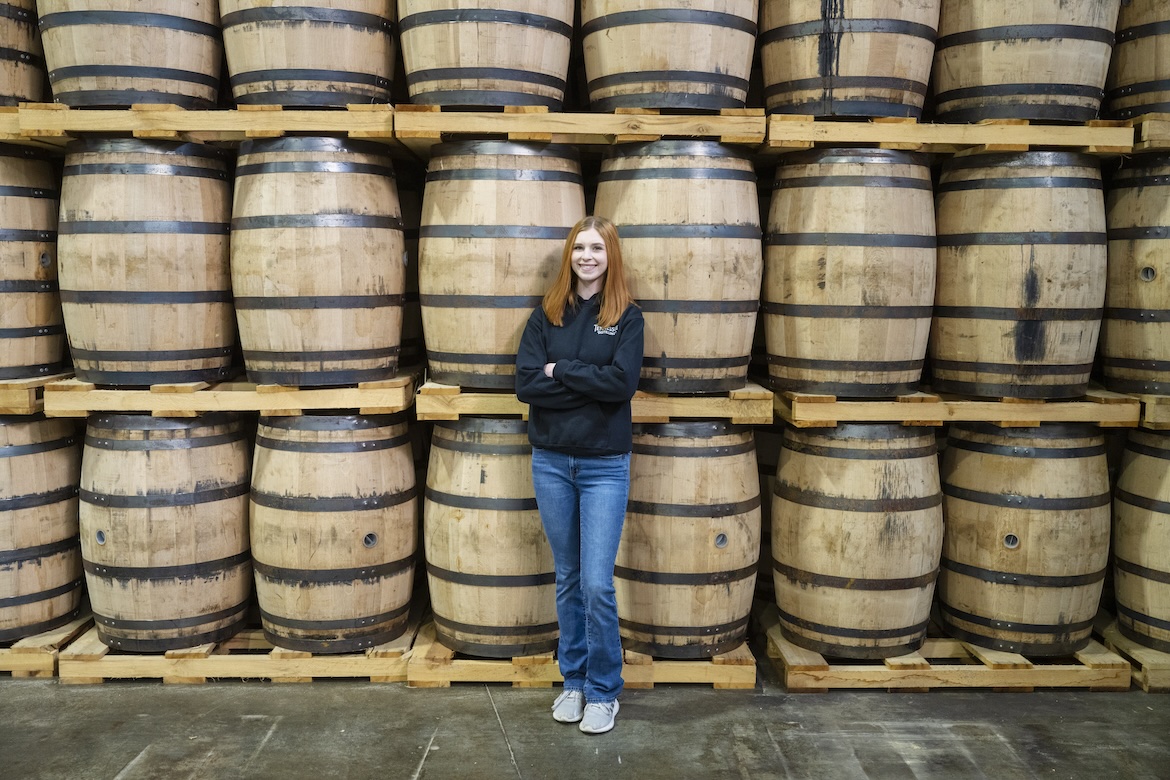
(Photos by James Cessna)
That traditional model of distilling was what Boeko was envisioning. As a scientist, he said, he was naturally intrigued by the process, although technically you don’t have to understand the process to follow it.
“Whiskey’s been made for a thousand years,” Boeko said. “Microbiology is much more recent; the microscope was invented something like 400 years ago.”
After he opened the distillery and it came time to hire, it made sense to turn to MTSU. He’d regularly trusted the University as a source for new scientists when he was hiring for the forensics lab. His second employee at Nashville Craft was a Blue Raider he had hired right out of college. They’d worked in the lab together for 10 years.
A year after Nashville Craft opened, MTSU launched a Fermentation Science program with bachelor’s and master’s tracks. It was the first degree program of its kind in Tennessee and one of just a few in the United States.
“I haven’t spent a lot of time at MTSU, but I’m certainly familiar with the students and the programs,” Boeko said. “Once we found out that the Fermentation Science program was opening, we were interested.”
He might have seen himself in the program; he certainly saw future employees. It was exactly the course of study you might enjoy if you love chemistry and biology and physics and hands-on work (and whiskey).
HANDS-ON SCIENCE
Since MTSU launched Fermentation Science in 2017, Boeko has hired two people from the program. The first came in as an intern and was offered a job upon graduation. The second—“kind of a weekend distiller/apprentice/distiller guide,” Boeko said—is working on his master’s degree.
Boeko said he can train new distillers more quickly when he doesn’t have to tell them what saccharomyces cerevisiae (brewer’s yeast) is or explain the differences between a polysaccharide versus an oligosaccharide versus a mono- or disaccharide (take the tour).
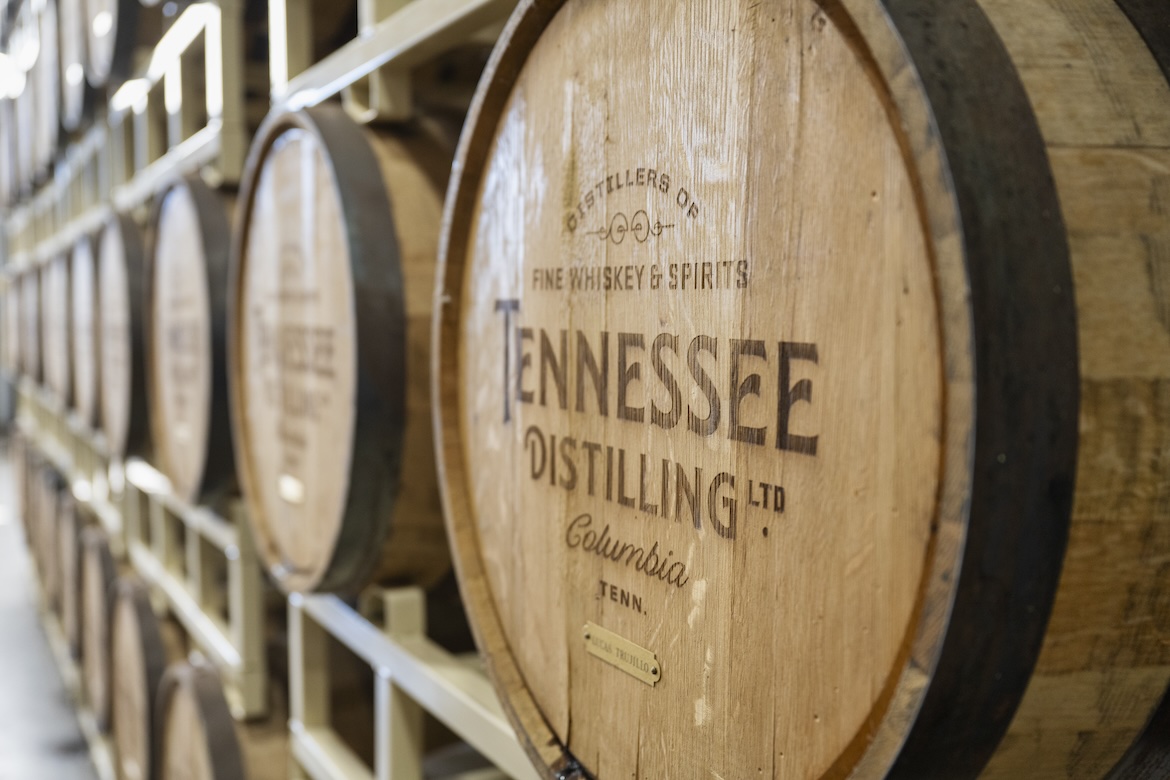
“They come in with a certain basic understanding already,” he said, “and then it’s more about teaching them our specific process and how to present the information to the public.”
It’s also helpful to have the scientific perspective of distillers whose knowledge isn’t specific to whiskey, he said, and Fermentation Science majors don’t just learn about brewing and distilling. You start thinking about fermentation a little differently when you talk to someone who also knows how to make kombucha.
Shelby Ziegler, among the first cohort of Fermentation Science majors, said her favorite part of the program was the hands-on aspect. In one class they made cheese and sausages. For another they tended a vineyard with Professor Tony Johnston, the program director, then later harvested and crushed the grapes to make wine. But with the popularity of brewing and distilling in Tennessee, those are the most obvious landing places for a Fermentation Science graduate. That’s where Ziegler landed too, even though she faced an otherwise challenging job market upon her December 2020 graduation.
She lived just north of Nashville, a short drive from any number of microbreweries; normally they’d be humming. But all the taprooms were closed during the early part of the COVID-19 pandemic.
“They’d gone to making hand sanitizer instead,” she said.
Still, they were hiring. Ziegler ended up turning down offers from microbreweries close to home to take an “enticing” job with a distillery 70 minutes away.
Tennessee Distilling Co. is a larger-scale production facility in Columbia that bottles some of the biggest whiskey labels in the world. With another campus in Centerville, the distiller also supports Tennessee farming, with the vast majority of grains purchased from within 100 miles of the Columbia facility, including thousands and thousands of pounds of corn every year and some local rye. (Malt and barley usually is grown elsewhere.)
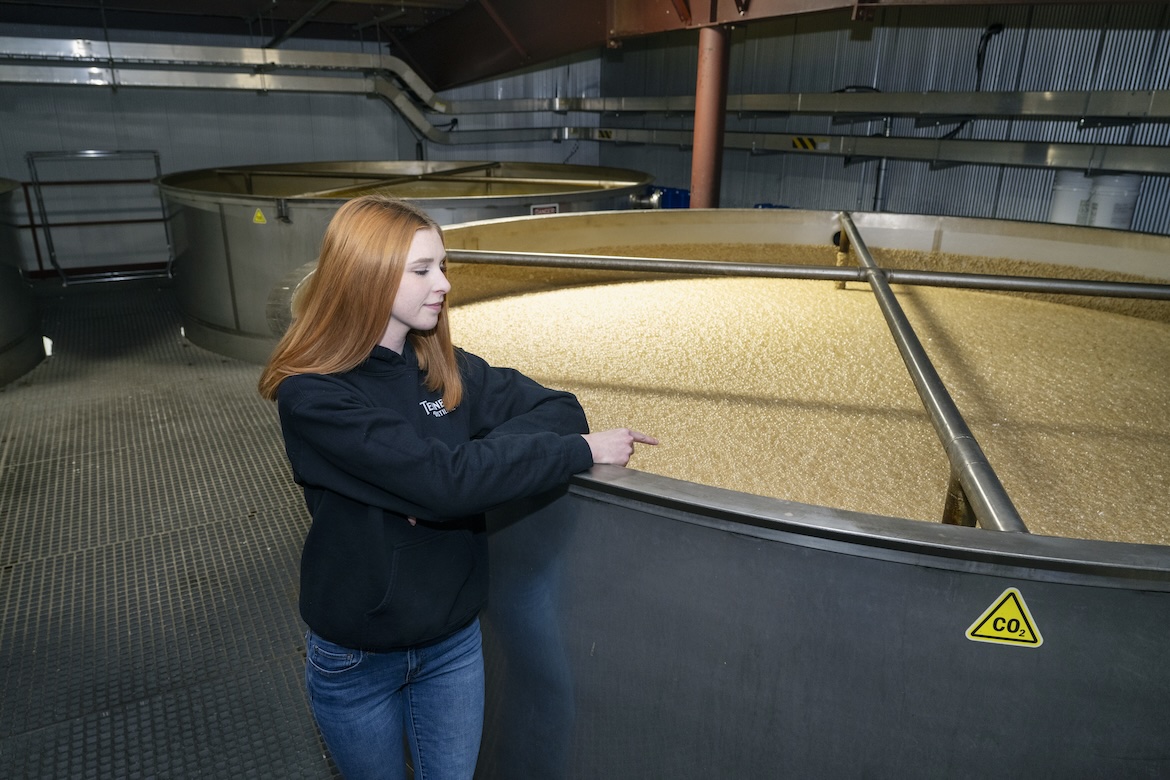
Ziegler said it took her some time to learn all the equipment—that’s unique to each distillery and therefore can’t be taught in class. But thanks to her academic training she walked into the job as a whiskey distiller knowing how to monitor and troubleshoot the organic process.
“I knew what the different pH means, the sugar content, what a healthy fermentation should look like, what could be off-flavors produced from whiskey, and what bacteria could produce those off-flavors,” she said. “So I learned about how to solve problems with the mash or the distillate, and I knew how to track the process to see if it was fermenting correctly.”
Ziegler is one of several MTSU Fermentation Science majors Mike Williams has hired since he and his business partner launched Tennessee Distilling eight years ago. As master distiller, Williams said, he values the skillset Johnston’s students bring because so many things can go wrong during fermentation.
“You know, you don’t inherently need a degree to run a still,” he said, “but his folks understand the problems in our mash making. They don’t just know what they’re doing; they know why they’re doing everything. So they tend to move up in the company to roles with more responsibility after starting as a brewer-distiller.”
It should be noted that Williams is also a Blue Raider—former cheerleader and student government president, class of 1981 (Economics). His wife, Nancy Sloan Williams, served as editor of the University’s student newspaper, Sidelines. The press box at MTSU’s Floyd Stadium is named for her grandfather.
IT’S ALSO HELPFUL TO HAVE THE SCIENTIFIC PERSPECTIVE OF DISTILLERS WHOSE KNOWLEDGE ISN’T SPECIFIC TO WHISKEY.
So it’s natural that Williams would be quick to hire from MTSU. But his professional investment in the Fermentation Science program speaks volumes. He’s so impressed with its graduates that he’s begun reimbursing his distillers who get the master’s degree.
That’s how Ziegler ended up back in school. She’d been employed at Tennessee Distilling about a year when she began mulling the idea of getting her master’s degree. She wanted to expand her knowledge, but not her student debt. An offer from Williams sealed the deal.
“That’s what got me to apply to grad school,” she said. “I didn’t want to take out a big loan to get my master’s, but Tennessee Distilling Group paid for it, and they’ve been super.”
The distillery runs 24/7, so she could attend class in the morning and work the evening shift.
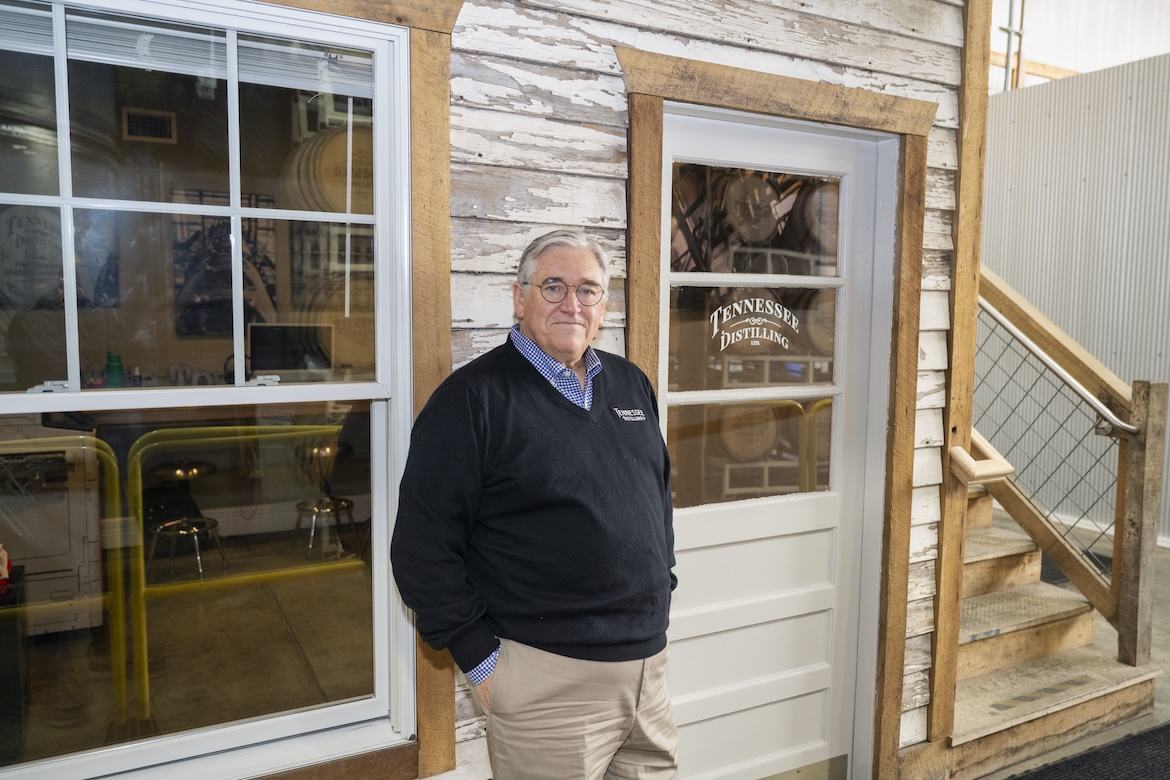
For Williams, investing in his employees’ advanced education is a way to build institutional knowledge quickly and stay on top of his company’s success.
“We’ve grown fairly rapidly,” he said. “Fast growth is a good problem, but it’s still a problem. I’ve felt like I’ve been riding a bull all this time.”
GOING PLACES
The Fermentation Science program has grown quickly too. From its initial cohort of 17 undergraduates in 2017, it’s now holding steady with 35 undergraduate students, plus 12 to 18 students in the two-year master’s program.
“It’s a revolving door, but we’ve got substantial interest,” Johnston said.
Fermentation Science majors don’t just come from Tennessee, he noted. They’ve come from Maryland, Virginia, Kentucky, Ohio, Georgia, and South Carolina.
Ziegler, an Alabama native, said she was originally attracted to the bachelor’s degree because it’s on the Academic Common Market, which lets college students in the southern U.S. pay in-state tuition for degrees not offered in their home states.
FIVE YEARS IN, FERMENTATION SCIENCE HAS ALSO EARNED THE CONFIDENCE OF TENNESSEE DISTILLERS AS A RESOURCE FOR TROUBLESHOOTING.
The master’s degree has drawn even more widespread interest, Johnston said; a quarter of the graduate students are international. In general, he’s been surprised by the diversity of their academic backgrounds.
“My initial expectation was that the majority of the students in our graduate program would be our undergraduates that just stay on, and that has completely not been the case,” he said. “We have a few that do change their career pathway. I’ve had psychology majors, graphic design, biology and microbiology, engineering. . . . I don’t want to say random, but not the pathways I expected people to follow.”
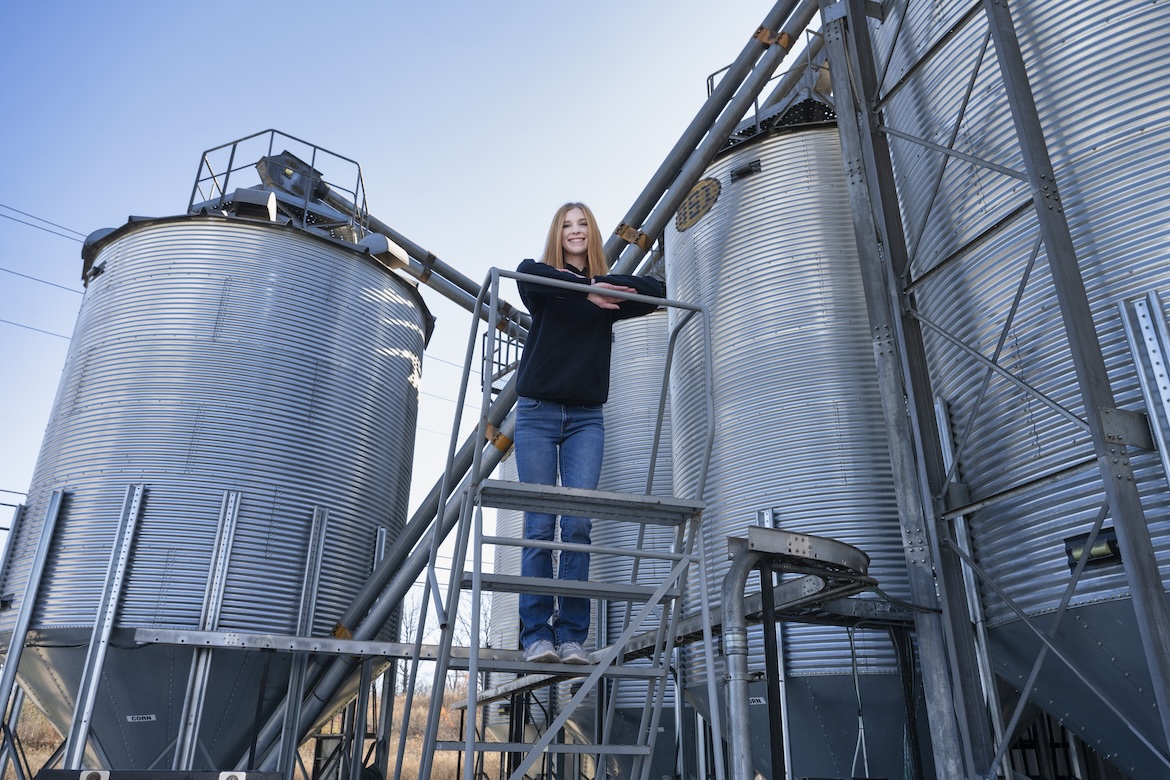
Zieger has carved her own path.
After completing two semesters of graduate-level Fermentation Science coursework, she switched to Biotechnology to get broader training in food science protocols and experiments—knowledge she can apply in the lab side of the distillery. She even moved up in the company from whiskey distiller to quality assurance manager before finishing her master’s in December 2023.
While some Fermentation Science graduates stay in Tennessee, like Ziegler has, others have landed all over the map, Johnston said.
“What impresses me equally is that they’ve gone to take positions in Wyoming, Oregon, Texas, Kentucky, and North Carolina, as well as Tennessee,” he said. “We’re getting students from around the country, and they’re taking jobs around the country.”
TROUBLESHOOTERS
Given the growth of the program and the success of its graduates, it was only a matter of time before other universities sat up and took notice. Last fall the first Fermentation Science faculty member Johnston hired went to Texas A&M University to start a program there.
“The way I look at it, they came to the best program to get a really great young man to run their program,” Johnston said. “To me, the fact that a tier-one, high-intensity research institution came and got my secondhand man, that’s a pretty large statement of confidence in our program.”
Five years in, Fermentation Science has also earned the confidence of Tennessee distillers as a resource for troubleshooting. One custom bottler turned to Johnston for help identifying the source of a gauzy film that kept appearing in a certain product.
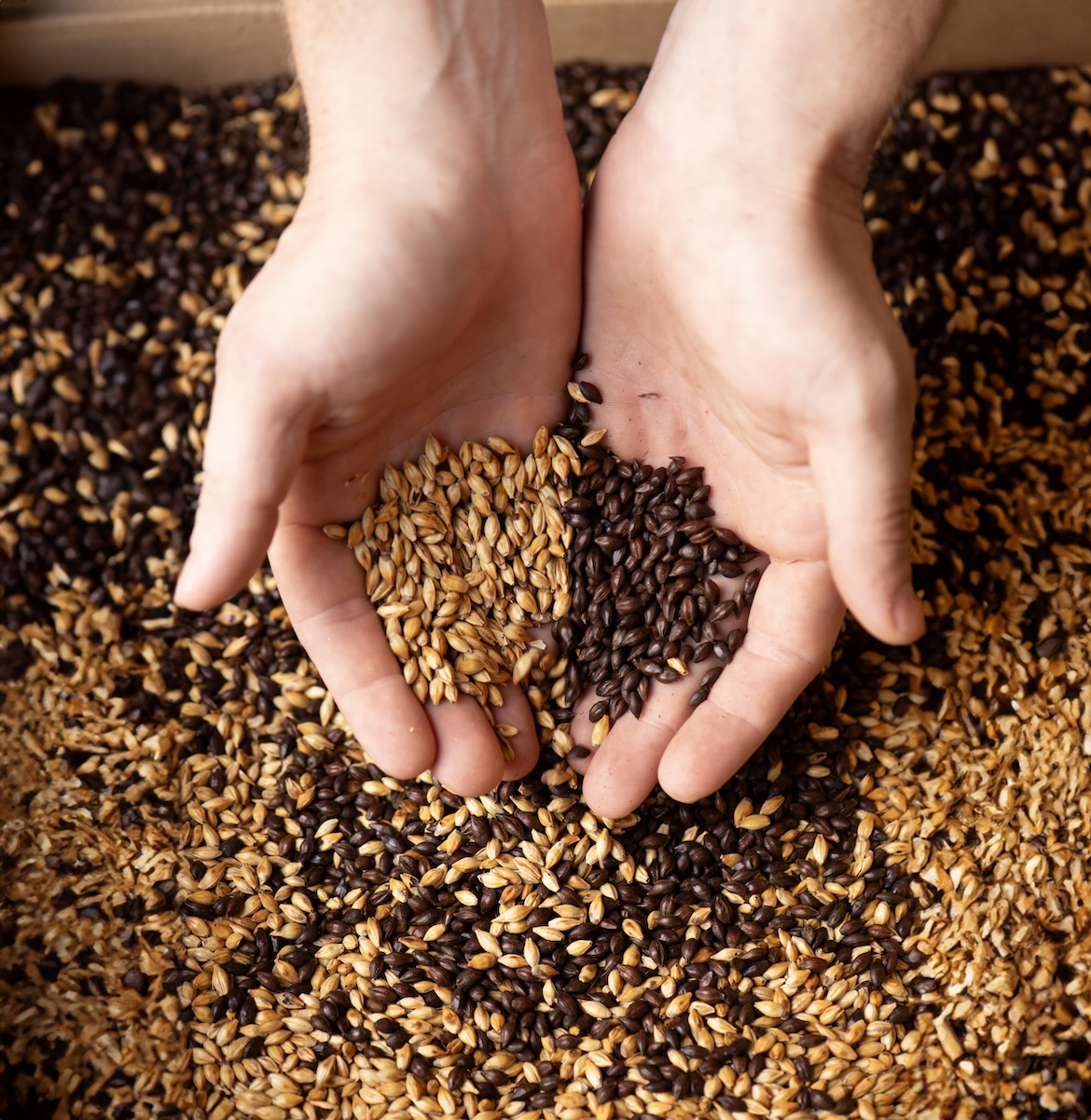
Johnston and his lab manager isolated the precipitant and ran an analysis that confirmed their suspicion:
“What we were able to go back and explain was that when you make a distilled spirit out of this particular grain, if you don’t decide to collect at the right time when you distill, you can bring in a component that causes this film.”
In other words, the problem was with the product the bottling company received, not with their process.
That was enough for the company rep. She waived further analysis, and Johnston waived the fee. Just make a donation to the program, he told her— whatever you think our work was worth. And she did.
“I was happy, and she was happy,” he said.
PART OF THE LANDSCAPE
In Tennessee, Fermentation Science has also established itself as an important part of the craft distilling ecosystem—which, as Boeko describes it, looks like a smaller, younger iteration of craft brewing.
“It’s a very small, concentrated industry of big players, mostly,” he said. “And now, like in the craft beer world, there are lots and lots and lots of small players. We still don’t make up as significant a percentage of market share in the distilling world as craft beer does in the beer world, but I think we’re moving in that direction.”
According to industry research company IBISWorld, the number of U.S. distilleries grew by an average of 9.6% a year between 2017 and 2022, when there were 2,047. There are 30 distilleries in Tennessee, some with multiple locations.
The distilling scene in Tennessee has changed dramatically in the 14 years since the state loosened its laws, Boeko said. The growth of the sector is reflected in the evolution of the Tennessee Distillers Guild. Founded in 2014 with 13 members, it created the Tennessee Whiskey Trail and has become “a very strong, capable” organization, he said.
“We work in contact with the Fermentation Science program at MTSU. We’re in contact with the UT ag extension people. We’re in contact with the Department of Agriculture. . . . And we get together, most of the distilleries, at least four times a year,” he said.
As he spoke, Boeko was preparing for the guild’s final event of 2023, the Grains & Grits Festival in Townsend. Some 1,300 guests would be gathering against the backdrop of the Great Smoky Mountains to enjoy “gourmet grub” and sample whiskey, rum, gin, vodka, and even moonshine from the state’s three great divisions. Sounds like a fitting celebration of the past and the future of Tennessee.
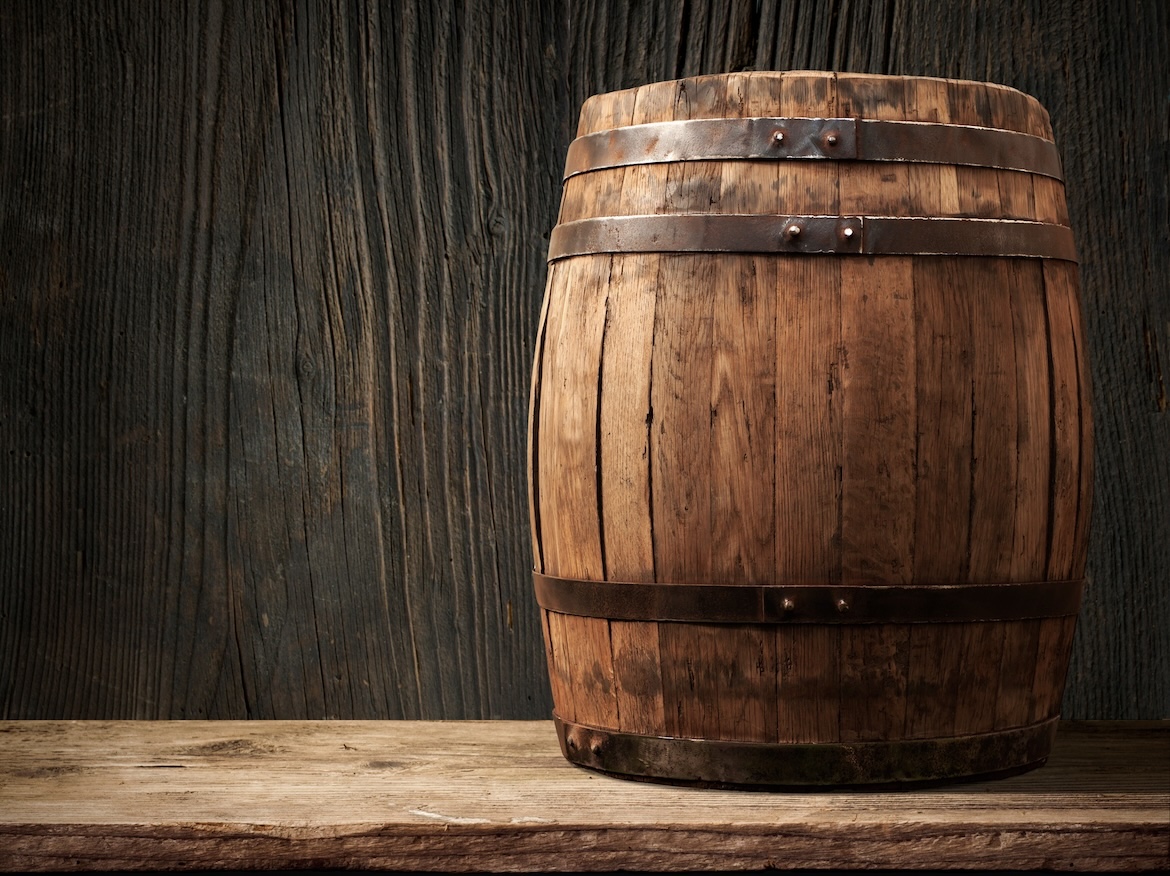
A Love-Hate Relationship
In January 1920, the United States banned the manufacture, transportation, and sale of alcohol from coast to coast. The U.S. didn’t lift the ban for 13 years.
Tennessee shrugged and said, Hold my beer (or something like that). Its prohibition lasted twice as long, predating federal prohibition by 10 years and postdating it by four.
The decision to ban alcohol production was momentous in a state where distilling had a long history and was an important business sector. In 1810, according to the Tennessee Distillers Guild, Tennessee had “hundreds of distilleries, with 30 in Chattanooga alone.”
By 1866 distilling was Tennessee’s largest manufacturing industry, and Chattanooga was a North American distilling hub. But with the state’s 1909 prohibition, all that business came to a stop. Legal business, that is. A banner headline in the Sept. 3, 1915, Hamilton County Herald announced charges against Chattanooga’s police commissioner and a local distiller, who’d been caught smuggling whiskey out of state in coffins.
Two of Tennessee’s legendary whiskey brands left the state too. Jack Daniel’s fled Lynchburg for St. Louis. George Dickel uprooted from Cascade Hollow and moved to Louisville. Both eventually were welcomed home after Tennessee’s prohibition lifted. But the state’s accommodation to the larger industry was grudging.
Distilling was legal in just three counties—Moore (Jack Daniel’s), Coffee (George Dickel), and Lincoln (Prichard’s Distillery, founded in 1997)—until 2009. That’s when the Tennessee General Assembly passed laws increasing the number of counties to 44, and then 75. The “Whiskey Bill” that allowed distilling in Hamilton County, with the approval of its county commission, wasn’t signed into law until 2013. Finally, Chattanooga Whiskey could be made in Chattanooga, not in Lawrenceburg, Indiana.
“There’s a love-hate relationship with alcohol in Tennessee,” remarked Bruce Boeko, who founded Nashville Craft Distillery in 2016. “A lot of that is religious, and somewhat it’s a rural-urban divide.”
Then again, he noted, urban distillers support rural agriculture. “There are things that bring folks together,” he said.
If a shot of whiskey won’t do it, maybe shared fortune will.

COMMENTS ARE OFF THIS POST